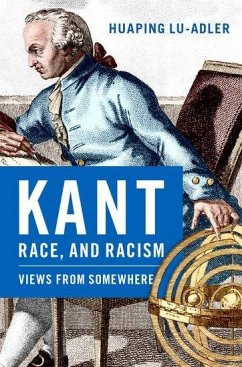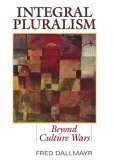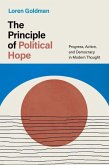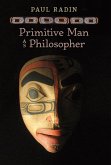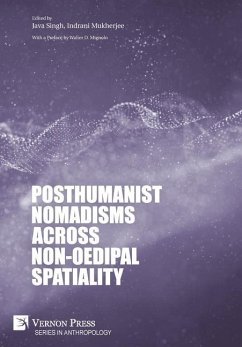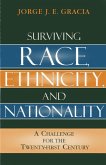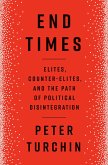- Gebundenes Buch
- Merkliste
- Auf die Merkliste
- Bewerten Bewerten
- Teilen
- Produkt teilen
- Produkterinnerung
- Produkterinnerung
This is a pathbreaking book on how to talk about racism--not only Kant's racism but also racism more generally. It challenges the prevailing individualistic approach to Kant's racism and invites the reader to think about the issue in a more holistic, thoughtful, and transformative way. Using Kant as a case study, it shows that history is not just something to be read, but something we still live with, and that oftentimes we must see the past more clearly to bring about a better future.
Andere Kunden interessierten sich auch für
![Animals, Robots, Gods Animals, Robots, Gods]() Webb KeaneAnimals, Robots, Gods22,99 €
Webb KeaneAnimals, Robots, Gods22,99 €![Integral Pluralism Integral Pluralism]() Fred DallmayrIntegral Pluralism41,99 €
Fred DallmayrIntegral Pluralism41,99 €![The Principle of Political Hope The Principle of Political Hope]() Loren GoldmanThe Principle of Political Hope97,99 €
Loren GoldmanThe Principle of Political Hope97,99 €![Primitive Man as Philosopher Primitive Man as Philosopher]() Paul RadinPrimitive Man as Philosopher30,99 €
Paul RadinPrimitive Man as Philosopher30,99 €![Posthumanist Nomadisms across non-Oedipal Spatiality Posthumanist Nomadisms across non-Oedipal Spatiality]() Posthumanist Nomadisms across non-Oedipal Spatiality73,99 €
Posthumanist Nomadisms across non-Oedipal Spatiality73,99 €![Surviving Race, Ethnicity, and Nationality Surviving Race, Ethnicity, and Nationality]() Jorge J E GraciaSurviving Race, Ethnicity, and Nationality150,99 €
Jorge J E GraciaSurviving Race, Ethnicity, and Nationality150,99 €![End Times End Times]() Peter TurchinEnd Times22,99 €
Peter TurchinEnd Times22,99 €-
-
-
This is a pathbreaking book on how to talk about racism--not only Kant's racism but also racism more generally. It challenges the prevailing individualistic approach to Kant's racism and invites the reader to think about the issue in a more holistic, thoughtful, and transformative way. Using Kant as a case study, it shows that history is not just something to be read, but something we still live with, and that oftentimes we must see the past more clearly to bring about a better future.
Hinweis: Dieser Artikel kann nur an eine deutsche Lieferadresse ausgeliefert werden.
Hinweis: Dieser Artikel kann nur an eine deutsche Lieferadresse ausgeliefert werden.
Produktdetails
- Produktdetails
- Verlag: Hurst & Co.
- Seitenzahl: 424
- Erscheinungstermin: 5. Mai 2023
- Englisch
- Abmessung: 240mm x 158mm x 34mm
- Gewicht: 670g
- ISBN-13: 9780197685211
- ISBN-10: 0197685218
- Artikelnr.: 67439273
- Herstellerkennzeichnung
- Libri GmbH
- Europaallee 1
- 36244 Bad Hersfeld
- gpsr@libri.de
- Verlag: Hurst & Co.
- Seitenzahl: 424
- Erscheinungstermin: 5. Mai 2023
- Englisch
- Abmessung: 240mm x 158mm x 34mm
- Gewicht: 670g
- ISBN-13: 9780197685211
- ISBN-10: 0197685218
- Artikelnr.: 67439273
- Herstellerkennzeichnung
- Libri GmbH
- Europaallee 1
- 36244 Bad Hersfeld
- gpsr@libri.de
Huaping Lu-Adler is Associate Professor of Philosophy at Georgetown University. She specializes in seventeenth- and eighteenth-century Western philosophy (particularly epistemology, metaphysics, philosophy of science, and logic). She is the author of Kant and the Science of Logic (Oxford, 2018).
* Note on Sources and Abbreviations
* General Introduction
* 1. The debate continues
* 2. It is not just about Kant: reconceptualizing his relation to
racism
* 3. Is there really a "contradiction"?
* 4. Locating Kant's racial views in his system
* 5. Kant's philosophy and antiracism
* 6. About the title and plan of this book
* Part I Reframe the Discourse
* Chapter 1 Whence Comes the Contradiction? -Reconsider the Place of
Race in Kant's System
* 1. Introduction
* 2. Arguing from an assumed contradiction: a literature review
* 3. Racism and Kant's moral universalism: a noncontradictory pairing
* 4. From what nature makes of man to what man can make of himself:
raciology in Kant's system
* 4.1. Physical geography as the original home of racialism
* 4.2. Racist upshot in pragmatic anthropology
* 5. Three levels of discourse: pure morals, anthropology, and
geography
* 6. Conclusion
* Chapter 2 "Racism" in What Sense?-Reconceptualize Kant's Relation to
Racism
* 1. Introduction
* 2. Characterizations of Kant's "racism": a preliminary overview
* 3. Which "racism"?-in search of a better way to conceptualize Kant's
relation to racism
* 3.1. How interpreters of Kant have conceptualized racism
* 3.2. How some race theorists have analyzed 'racism'
* 4. Kant and the racist-ideological formation
* 5. Conclusion
* Part II Seeing "Race"
* Chapter 3 Investigating Nature under the Guidance of Reason-Kant's
Approach to "Race" as a Naturforscher
* 1. Introduction
* 2. Race from the standpoint of a Naturforscher: a sketch of Kant's
view
* 3. Commitments of a Naturforscher: some telling clues in Kant's early
works
* 4. A theory of hypothesis for the Kantian Naturforscher
* 5. Interlude: Kant's methodological turn after his first essay on
race
* 6. The influence of reason on the investigation of nature: unity and
teleology
* 6.1. Systematic unity and regulative principles of reason in the
first Critique
* 6.2. Kant on the use of teleological principles in the 1788 essay on
race
* 7. A teleological-mechanical mode of explanation: how the third
Critique solidifies Kant's race theory
* 8. Conclusion
* Chapter 4 From Baconian Natural History to Kant's Racialization of
Human Differences-A Study of Philosophizing from Locations of Power
* 1. Introduction
* 2. Francis Bacon, the Royal Society, and a global data production
* 2.1. Bacon and the program of natural history
* 2.2. Boyle and a scientific attention to skin color
* 3. The beginning of a paradigm shift: Linnaeus's Systema Naturae and
human varieties
* 4. Buffon: scientific monogenesis, degeneration, and the problem of
slavery
* 4.1. Buffon on natural history, with a critique of the Linnaean
taxonomy
* 4.2. Mapping human "varieties," with passing remarks on slavery
* 4.3. Climate, moule interieur, and degeneration: Buffon's scientific
monogenism
* 4.4. Degeneration and human perfectibility: an entanglement of theory
and practice
* 5. Going beyond Buffon: Kant on "race," monogenesis, and slavery
* 5.1. Kant's Naturgeschichte and a new model of monogenesis
* 5.2. Kantian monogenism, human progress, and racial slavery
* 6. Conclusion
* Part III A Worldview Transformed by "Race"
* Chapter 5 What is Seen Cannot Be Unseen-What Kant Can(not) Tell Us
about Racial (Self-)Perceptions
* 1. Introduction
* 2. From race concepts to racial ideology
* 3. Kant on abstraction, or why it is so hard to unsee race
* 4. Kleist: "Kant crisis" and the tragic trap of racialization
* 5. William der Neger: the double consciousness of a "Negro"
* 6. Conclusion
* Chapter 6 Race and the Claim to True Philosophy-Kant and the
Formation of a Exclusionary History of Philosophy
* 1. Introduction
* 2. Eclecticism, system making, and critique: competing ways of
philosophizing
* 2.1. Eclecticism versus dogmatic systematization: an
eighteenth-century debate
* 2.2. Kant on the "eye of true philosophy": systematicity with a
worldly orientation
* 3. Beholding the history of philosophy with a true philosophical eye
* 3.1. The Kantian rational history of philosophy
* 3.2. From Brucker's historia to Kant's Geschichte of philosophy
* 4. Kant on the origin of "true philosophy": toward a racially
exclusionary history of philosophy
* 5. Conclusion
* A Forward-Looking Conclusion
* 1. Kant as a scholar and as an educator: how I have interpreted his
relation to racism
* 2. How we move forward with Kant's philosophy: some programmatic
ideas
* 2.1. Normative reorientation and standpoint awareness: the work of a
liberal Kantian scholar
* 2.2. Students as situated meaning makers: the work of a liberal
Kantian educator
* Acknowledgements
* Bibliography
* Index
* General Introduction
* 1. The debate continues
* 2. It is not just about Kant: reconceptualizing his relation to
racism
* 3. Is there really a "contradiction"?
* 4. Locating Kant's racial views in his system
* 5. Kant's philosophy and antiracism
* 6. About the title and plan of this book
* Part I Reframe the Discourse
* Chapter 1 Whence Comes the Contradiction? -Reconsider the Place of
Race in Kant's System
* 1. Introduction
* 2. Arguing from an assumed contradiction: a literature review
* 3. Racism and Kant's moral universalism: a noncontradictory pairing
* 4. From what nature makes of man to what man can make of himself:
raciology in Kant's system
* 4.1. Physical geography as the original home of racialism
* 4.2. Racist upshot in pragmatic anthropology
* 5. Three levels of discourse: pure morals, anthropology, and
geography
* 6. Conclusion
* Chapter 2 "Racism" in What Sense?-Reconceptualize Kant's Relation to
Racism
* 1. Introduction
* 2. Characterizations of Kant's "racism": a preliminary overview
* 3. Which "racism"?-in search of a better way to conceptualize Kant's
relation to racism
* 3.1. How interpreters of Kant have conceptualized racism
* 3.2. How some race theorists have analyzed 'racism'
* 4. Kant and the racist-ideological formation
* 5. Conclusion
* Part II Seeing "Race"
* Chapter 3 Investigating Nature under the Guidance of Reason-Kant's
Approach to "Race" as a Naturforscher
* 1. Introduction
* 2. Race from the standpoint of a Naturforscher: a sketch of Kant's
view
* 3. Commitments of a Naturforscher: some telling clues in Kant's early
works
* 4. A theory of hypothesis for the Kantian Naturforscher
* 5. Interlude: Kant's methodological turn after his first essay on
race
* 6. The influence of reason on the investigation of nature: unity and
teleology
* 6.1. Systematic unity and regulative principles of reason in the
first Critique
* 6.2. Kant on the use of teleological principles in the 1788 essay on
race
* 7. A teleological-mechanical mode of explanation: how the third
Critique solidifies Kant's race theory
* 8. Conclusion
* Chapter 4 From Baconian Natural History to Kant's Racialization of
Human Differences-A Study of Philosophizing from Locations of Power
* 1. Introduction
* 2. Francis Bacon, the Royal Society, and a global data production
* 2.1. Bacon and the program of natural history
* 2.2. Boyle and a scientific attention to skin color
* 3. The beginning of a paradigm shift: Linnaeus's Systema Naturae and
human varieties
* 4. Buffon: scientific monogenesis, degeneration, and the problem of
slavery
* 4.1. Buffon on natural history, with a critique of the Linnaean
taxonomy
* 4.2. Mapping human "varieties," with passing remarks on slavery
* 4.3. Climate, moule interieur, and degeneration: Buffon's scientific
monogenism
* 4.4. Degeneration and human perfectibility: an entanglement of theory
and practice
* 5. Going beyond Buffon: Kant on "race," monogenesis, and slavery
* 5.1. Kant's Naturgeschichte and a new model of monogenesis
* 5.2. Kantian monogenism, human progress, and racial slavery
* 6. Conclusion
* Part III A Worldview Transformed by "Race"
* Chapter 5 What is Seen Cannot Be Unseen-What Kant Can(not) Tell Us
about Racial (Self-)Perceptions
* 1. Introduction
* 2. From race concepts to racial ideology
* 3. Kant on abstraction, or why it is so hard to unsee race
* 4. Kleist: "Kant crisis" and the tragic trap of racialization
* 5. William der Neger: the double consciousness of a "Negro"
* 6. Conclusion
* Chapter 6 Race and the Claim to True Philosophy-Kant and the
Formation of a Exclusionary History of Philosophy
* 1. Introduction
* 2. Eclecticism, system making, and critique: competing ways of
philosophizing
* 2.1. Eclecticism versus dogmatic systematization: an
eighteenth-century debate
* 2.2. Kant on the "eye of true philosophy": systematicity with a
worldly orientation
* 3. Beholding the history of philosophy with a true philosophical eye
* 3.1. The Kantian rational history of philosophy
* 3.2. From Brucker's historia to Kant's Geschichte of philosophy
* 4. Kant on the origin of "true philosophy": toward a racially
exclusionary history of philosophy
* 5. Conclusion
* A Forward-Looking Conclusion
* 1. Kant as a scholar and as an educator: how I have interpreted his
relation to racism
* 2. How we move forward with Kant's philosophy: some programmatic
ideas
* 2.1. Normative reorientation and standpoint awareness: the work of a
liberal Kantian scholar
* 2.2. Students as situated meaning makers: the work of a liberal
Kantian educator
* Acknowledgements
* Bibliography
* Index
* Note on Sources and Abbreviations
* General Introduction
* 1. The debate continues
* 2. It is not just about Kant: reconceptualizing his relation to
racism
* 3. Is there really a "contradiction"?
* 4. Locating Kant's racial views in his system
* 5. Kant's philosophy and antiracism
* 6. About the title and plan of this book
* Part I Reframe the Discourse
* Chapter 1 Whence Comes the Contradiction? -Reconsider the Place of
Race in Kant's System
* 1. Introduction
* 2. Arguing from an assumed contradiction: a literature review
* 3. Racism and Kant's moral universalism: a noncontradictory pairing
* 4. From what nature makes of man to what man can make of himself:
raciology in Kant's system
* 4.1. Physical geography as the original home of racialism
* 4.2. Racist upshot in pragmatic anthropology
* 5. Three levels of discourse: pure morals, anthropology, and
geography
* 6. Conclusion
* Chapter 2 "Racism" in What Sense?-Reconceptualize Kant's Relation to
Racism
* 1. Introduction
* 2. Characterizations of Kant's "racism": a preliminary overview
* 3. Which "racism"?-in search of a better way to conceptualize Kant's
relation to racism
* 3.1. How interpreters of Kant have conceptualized racism
* 3.2. How some race theorists have analyzed 'racism'
* 4. Kant and the racist-ideological formation
* 5. Conclusion
* Part II Seeing "Race"
* Chapter 3 Investigating Nature under the Guidance of Reason-Kant's
Approach to "Race" as a Naturforscher
* 1. Introduction
* 2. Race from the standpoint of a Naturforscher: a sketch of Kant's
view
* 3. Commitments of a Naturforscher: some telling clues in Kant's early
works
* 4. A theory of hypothesis for the Kantian Naturforscher
* 5. Interlude: Kant's methodological turn after his first essay on
race
* 6. The influence of reason on the investigation of nature: unity and
teleology
* 6.1. Systematic unity and regulative principles of reason in the
first Critique
* 6.2. Kant on the use of teleological principles in the 1788 essay on
race
* 7. A teleological-mechanical mode of explanation: how the third
Critique solidifies Kant's race theory
* 8. Conclusion
* Chapter 4 From Baconian Natural History to Kant's Racialization of
Human Differences-A Study of Philosophizing from Locations of Power
* 1. Introduction
* 2. Francis Bacon, the Royal Society, and a global data production
* 2.1. Bacon and the program of natural history
* 2.2. Boyle and a scientific attention to skin color
* 3. The beginning of a paradigm shift: Linnaeus's Systema Naturae and
human varieties
* 4. Buffon: scientific monogenesis, degeneration, and the problem of
slavery
* 4.1. Buffon on natural history, with a critique of the Linnaean
taxonomy
* 4.2. Mapping human "varieties," with passing remarks on slavery
* 4.3. Climate, moule interieur, and degeneration: Buffon's scientific
monogenism
* 4.4. Degeneration and human perfectibility: an entanglement of theory
and practice
* 5. Going beyond Buffon: Kant on "race," monogenesis, and slavery
* 5.1. Kant's Naturgeschichte and a new model of monogenesis
* 5.2. Kantian monogenism, human progress, and racial slavery
* 6. Conclusion
* Part III A Worldview Transformed by "Race"
* Chapter 5 What is Seen Cannot Be Unseen-What Kant Can(not) Tell Us
about Racial (Self-)Perceptions
* 1. Introduction
* 2. From race concepts to racial ideology
* 3. Kant on abstraction, or why it is so hard to unsee race
* 4. Kleist: "Kant crisis" and the tragic trap of racialization
* 5. William der Neger: the double consciousness of a "Negro"
* 6. Conclusion
* Chapter 6 Race and the Claim to True Philosophy-Kant and the
Formation of a Exclusionary History of Philosophy
* 1. Introduction
* 2. Eclecticism, system making, and critique: competing ways of
philosophizing
* 2.1. Eclecticism versus dogmatic systematization: an
eighteenth-century debate
* 2.2. Kant on the "eye of true philosophy": systematicity with a
worldly orientation
* 3. Beholding the history of philosophy with a true philosophical eye
* 3.1. The Kantian rational history of philosophy
* 3.2. From Brucker's historia to Kant's Geschichte of philosophy
* 4. Kant on the origin of "true philosophy": toward a racially
exclusionary history of philosophy
* 5. Conclusion
* A Forward-Looking Conclusion
* 1. Kant as a scholar and as an educator: how I have interpreted his
relation to racism
* 2. How we move forward with Kant's philosophy: some programmatic
ideas
* 2.1. Normative reorientation and standpoint awareness: the work of a
liberal Kantian scholar
* 2.2. Students as situated meaning makers: the work of a liberal
Kantian educator
* Acknowledgements
* Bibliography
* Index
* General Introduction
* 1. The debate continues
* 2. It is not just about Kant: reconceptualizing his relation to
racism
* 3. Is there really a "contradiction"?
* 4. Locating Kant's racial views in his system
* 5. Kant's philosophy and antiracism
* 6. About the title and plan of this book
* Part I Reframe the Discourse
* Chapter 1 Whence Comes the Contradiction? -Reconsider the Place of
Race in Kant's System
* 1. Introduction
* 2. Arguing from an assumed contradiction: a literature review
* 3. Racism and Kant's moral universalism: a noncontradictory pairing
* 4. From what nature makes of man to what man can make of himself:
raciology in Kant's system
* 4.1. Physical geography as the original home of racialism
* 4.2. Racist upshot in pragmatic anthropology
* 5. Three levels of discourse: pure morals, anthropology, and
geography
* 6. Conclusion
* Chapter 2 "Racism" in What Sense?-Reconceptualize Kant's Relation to
Racism
* 1. Introduction
* 2. Characterizations of Kant's "racism": a preliminary overview
* 3. Which "racism"?-in search of a better way to conceptualize Kant's
relation to racism
* 3.1. How interpreters of Kant have conceptualized racism
* 3.2. How some race theorists have analyzed 'racism'
* 4. Kant and the racist-ideological formation
* 5. Conclusion
* Part II Seeing "Race"
* Chapter 3 Investigating Nature under the Guidance of Reason-Kant's
Approach to "Race" as a Naturforscher
* 1. Introduction
* 2. Race from the standpoint of a Naturforscher: a sketch of Kant's
view
* 3. Commitments of a Naturforscher: some telling clues in Kant's early
works
* 4. A theory of hypothesis for the Kantian Naturforscher
* 5. Interlude: Kant's methodological turn after his first essay on
race
* 6. The influence of reason on the investigation of nature: unity and
teleology
* 6.1. Systematic unity and regulative principles of reason in the
first Critique
* 6.2. Kant on the use of teleological principles in the 1788 essay on
race
* 7. A teleological-mechanical mode of explanation: how the third
Critique solidifies Kant's race theory
* 8. Conclusion
* Chapter 4 From Baconian Natural History to Kant's Racialization of
Human Differences-A Study of Philosophizing from Locations of Power
* 1. Introduction
* 2. Francis Bacon, the Royal Society, and a global data production
* 2.1. Bacon and the program of natural history
* 2.2. Boyle and a scientific attention to skin color
* 3. The beginning of a paradigm shift: Linnaeus's Systema Naturae and
human varieties
* 4. Buffon: scientific monogenesis, degeneration, and the problem of
slavery
* 4.1. Buffon on natural history, with a critique of the Linnaean
taxonomy
* 4.2. Mapping human "varieties," with passing remarks on slavery
* 4.3. Climate, moule interieur, and degeneration: Buffon's scientific
monogenism
* 4.4. Degeneration and human perfectibility: an entanglement of theory
and practice
* 5. Going beyond Buffon: Kant on "race," monogenesis, and slavery
* 5.1. Kant's Naturgeschichte and a new model of monogenesis
* 5.2. Kantian monogenism, human progress, and racial slavery
* 6. Conclusion
* Part III A Worldview Transformed by "Race"
* Chapter 5 What is Seen Cannot Be Unseen-What Kant Can(not) Tell Us
about Racial (Self-)Perceptions
* 1. Introduction
* 2. From race concepts to racial ideology
* 3. Kant on abstraction, or why it is so hard to unsee race
* 4. Kleist: "Kant crisis" and the tragic trap of racialization
* 5. William der Neger: the double consciousness of a "Negro"
* 6. Conclusion
* Chapter 6 Race and the Claim to True Philosophy-Kant and the
Formation of a Exclusionary History of Philosophy
* 1. Introduction
* 2. Eclecticism, system making, and critique: competing ways of
philosophizing
* 2.1. Eclecticism versus dogmatic systematization: an
eighteenth-century debate
* 2.2. Kant on the "eye of true philosophy": systematicity with a
worldly orientation
* 3. Beholding the history of philosophy with a true philosophical eye
* 3.1. The Kantian rational history of philosophy
* 3.2. From Brucker's historia to Kant's Geschichte of philosophy
* 4. Kant on the origin of "true philosophy": toward a racially
exclusionary history of philosophy
* 5. Conclusion
* A Forward-Looking Conclusion
* 1. Kant as a scholar and as an educator: how I have interpreted his
relation to racism
* 2. How we move forward with Kant's philosophy: some programmatic
ideas
* 2.1. Normative reorientation and standpoint awareness: the work of a
liberal Kantian scholar
* 2.2. Students as situated meaning makers: the work of a liberal
Kantian educator
* Acknowledgements
* Bibliography
* Index

